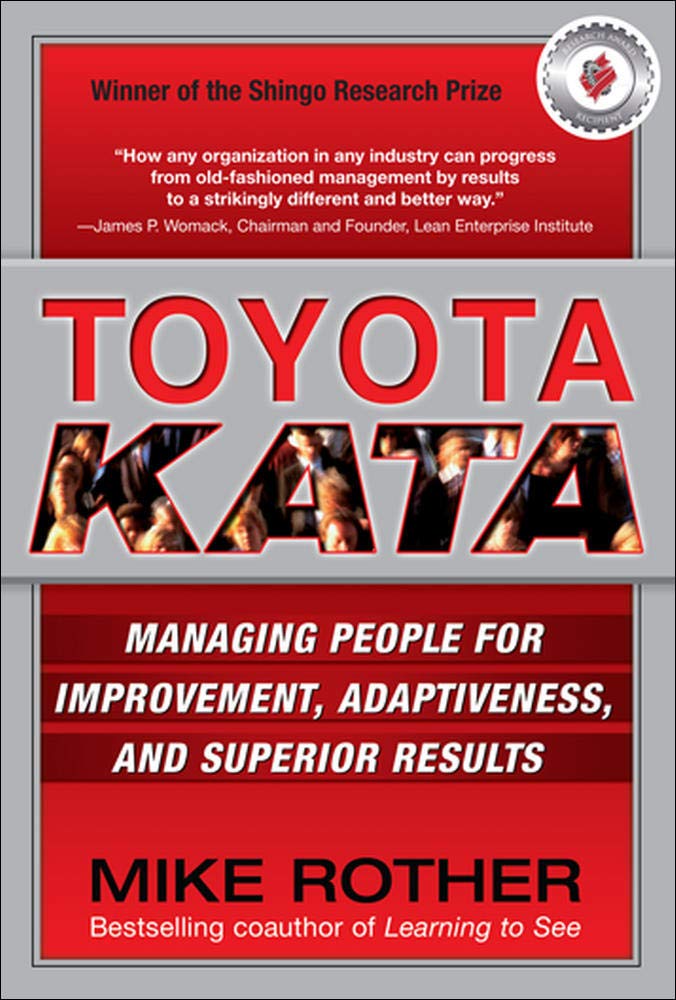Jens Comiotto-Mayer reseñó Toyota kata de Mike Rother
Review of 'Toyota kata' on 'Goodreads'
4 estrellas
This is an important book that has two main takeaways for me that hold valid also in non-manufacturing contexts: 1) »It is generally not possible simply to maintain a level of process performance. A process will tend to erode no matter what, even if a standard is defined, explained to everyone, and posted. […] Any organized process naturally tends to decline to a chaotic state if we leave it alone. […] A process is either slipping back or being improved.« 2) And more importantly: The Toyota (Coaching) Kata and its underlying conceptions itself, especially in contradiction to the classical "Action-Item List" approach ("What can we do?" vs. a more focused "What do we need to do?"), which is hard to explain in just a few words – and the reason why you should read this book. It made me think a lot about how we use systems and processes like …
This is an important book that has two main takeaways for me that hold valid also in non-manufacturing contexts: 1) »It is generally not possible simply to maintain a level of process performance. A process will tend to erode no matter what, even if a standard is defined, explained to everyone, and posted. […] Any organized process naturally tends to decline to a chaotic state if we leave it alone. […] A process is either slipping back or being improved.« 2) And more importantly: The Toyota (Coaching) Kata and its underlying conceptions itself, especially in contradiction to the classical "Action-Item List" approach ("What can we do?" vs. a more focused "What do we need to do?"), which is hard to explain in just a few words – and the reason why you should read this book. It made me think a lot about how we use systems and processes like Kanban or Scrum in our different contexts, about the power of "go and see" over well established reporting lines, and how far we usually are from really challenging the current conditions to adapt and improve.
So why only 4 stars? This book is tailored to a manufacturing world, which means you have to translate a lot of what has been said for your environment that might fundamentally differ, where variety isn't always necessarily a bad thing and work much more non-repetitive at its core. But if you recognize the essence of the Toyota Kata, you will find insights and new perspectives that cannot be over-estimated.


